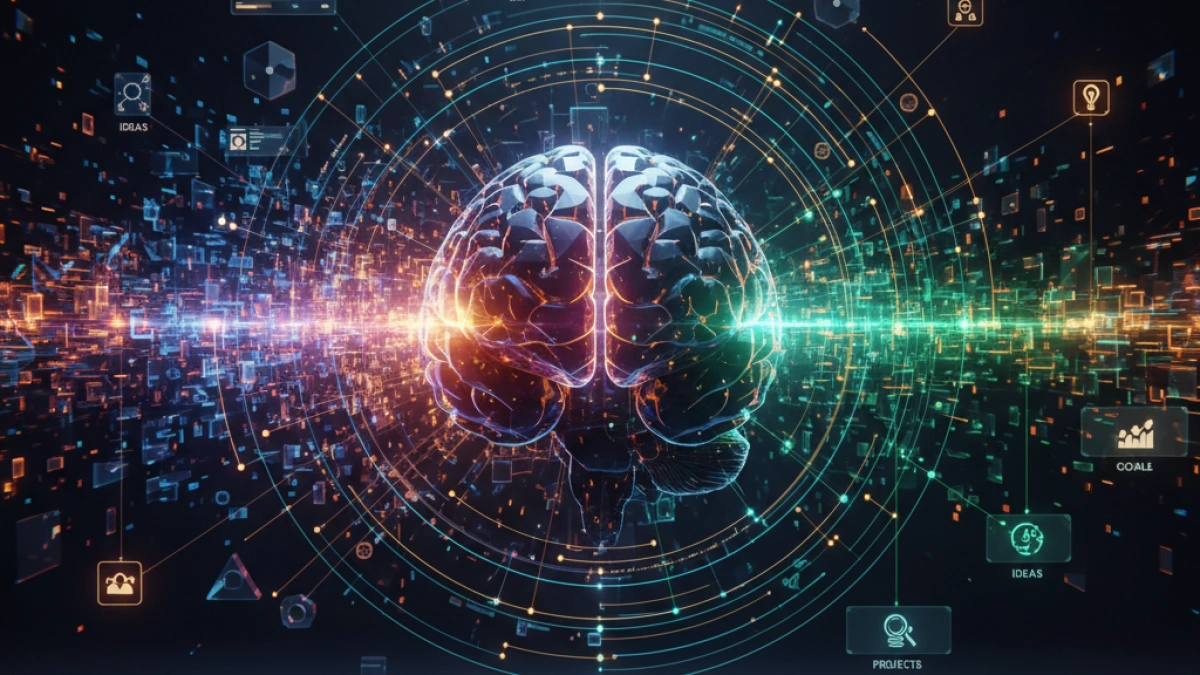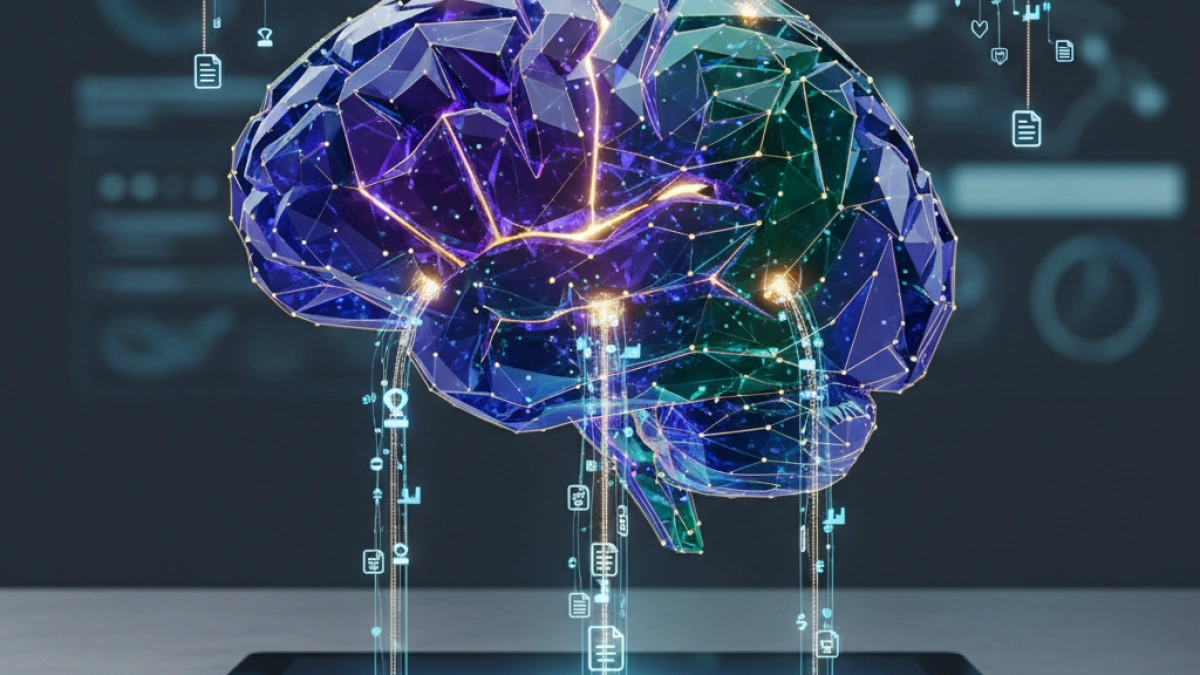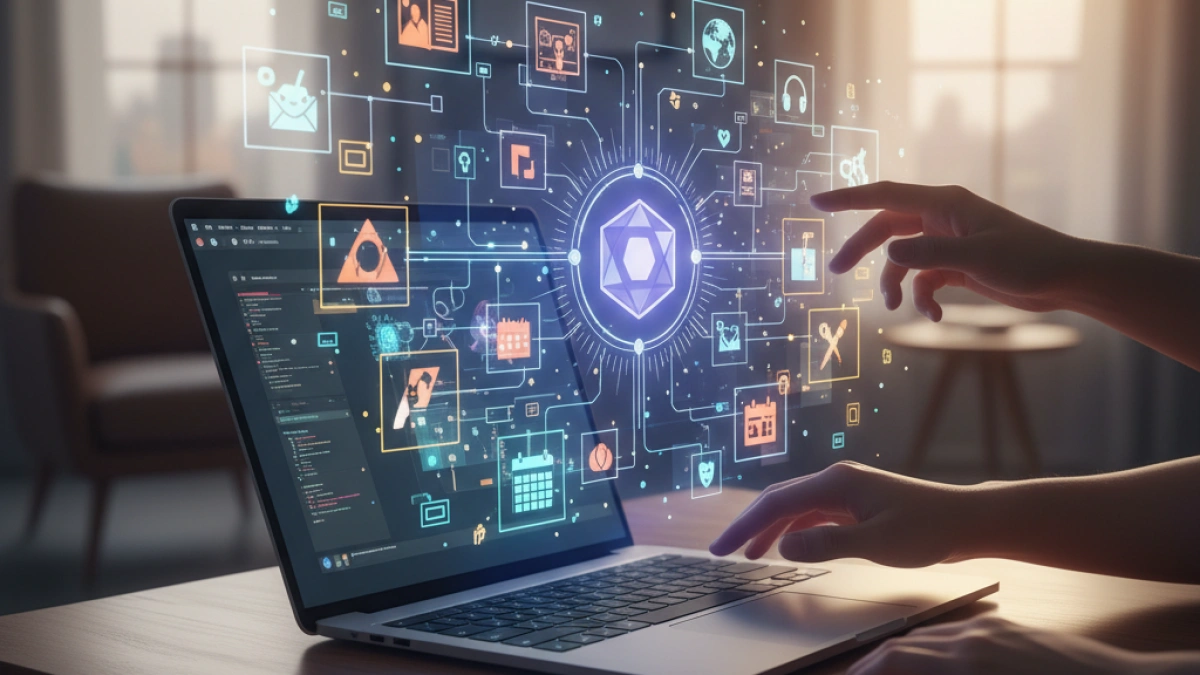Obsidian: your second brain for organizing ideas and enhancing your productivity


In the era of information overload, efficiently managing ideas, projects, and knowledge can seem like an overwhelming task. Imagining a digital space that not only stores notes but also connects them, facilitates the discovery of patterns, and enhances mental clarity is now possible thanks to Obsidian. This powerful tool has gained popularity among its users for its ability to transform the way they organize their personal and professional lives. Below, we delve into what Obsidian is, its nickname as a "second brain," and how it can change your approach to productivity.
What is Obsidian?
Obsidian is a note-taking and knowledge management application that turns a simple folder of plain text files into a robust interconnected database on your computer. Unlike many applications that store data in the cloud in proprietary formats, Obsidian operates with local files in Markdown format (.md).
This approach offers two key advantages:
- Total control and privacy: Storing notes on the user's device ensures absolute control over the data and provides a higher level of security.
- Long-term accessibility: Plain text files guarantee that notes will remain accessible and are easy to migrate to other text editors, even if the Obsidian application were to cease to exist.
Moreover, Obsidian is highly customizable and features an ecosystem of over 1,500 plugins developed by the community, allowing users to add specific functionalities according to their needs. This includes Kanban boards for project management, calendars, and tools for creating mind maps and databases.
Read also
The concept of the "second brain"
Obsidian's designation as a "second brain" comes from its ability to mimic the way human thinking establishes connections. Unlike linear thinking, humans jump from one idea to another, generating a web of interrelated thoughts. Obsidian replicates this process through its bidirectional links.
When one note is linked to another using the syntax [[Note Name]], it not only creates a link to that note, but the destination note also "recognizes" it has been linked. This mechanism generates a knowledge network that can be visualized in the "graph view," an interactive map showing how ideas are related.
This system allows users to:
Read also
- Unload the mind: By having the option to jot down ideas, tasks, or any information, the brain is freed from the burden of remembering everything, ensuring information is organized and accessible when needed.
- Deeply connect ideas: Visualizing relationships between notes fosters the discovery of perspectives and patterns that might otherwise go unnoticed.
- Build long-term knowledge: Rather than retaining isolated notes, users build a solid and growing knowledge base, akin to creating their own personal Wikipedia.
A comment on Reddit illustrates this functionality by comparing it to having a "Google for my brain," highlighting the utility of compiling snippets of thoughts that are sometimes too complex to keep in mind simultaneously.
How can Obsidian help you in your day-to-day life?
The versatility of Obsidian makes it a useful tool for various profiles and needs. Here are examples of how different groups can benefit from this powerful application:
For students and teachers
Obsidian is exceptional for organizing class notes, reading summaries, and research projects. A history student, for instance, can link notes about different events to better understand causal relationships. Teachers can manage teaching materials and create interconnected guides for their students.
For professionals and creatives
From solutions architects handling hundreds of requirements to writers structuring plots, characters, and worlds, Obsidian enables project management, meeting organization, and knowledge base creation on specific topics. Its flexibility makes it easy to adapt the application to different workflows.
For personal organization and development
Obsidian can be used for journaling, tracking habits, meal planning, organizing trips, or simply capturing random ideas so they aren’t forgotten. It is particularly beneficial for people with ADHD, as it helps them record and organize thoughts that might otherwise slip away.
In summary, Obsidian provides the following benefits:
- Clarity and focus: The structured organization of information helps reduce mental noise and concentrate on what truly matters.
- Productivity and efficiency: Centralizing information in one place and having quick access saves time and effort.
- Creativity and deep learning: The interconnection of ideas fosters innovation and a more robust understanding of concepts.
If you’re looking for a tool that not only adapts to individual needs but also offers total control over information and enhances thinking, Obsidian is undoubtedly a valuable option to consider.
For more insights and recommendations on tools that can boost your productivity, feel free to check out more content on my blog.



















